If you are familiar with SEO tactics from the past several years, you are aware that every SEO expert recommends long-form content, at least 900-1500 words long.
SEO tools and gurus of all calibers even recommend 2000-3000 parole, to be the ideal length for a blog article.
Do you write 2000+ words articles to win Google’s love? Here I let my imagination run wild about what the future of the SERP will look like.
Please vote in a good ol’ poll
[totalpoll id=”4387″]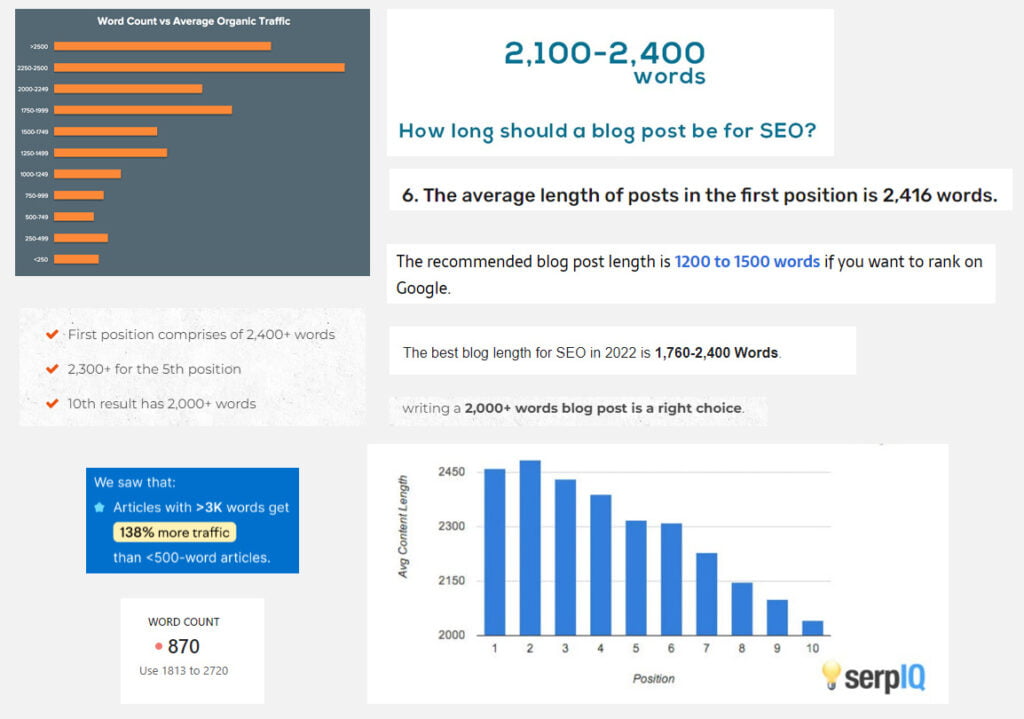
I can keep adding examples like the above for days!
Everyone is suggesting the same thing, non importa di cosa tratta il tuo articolo, nella SEO moderna, se vuoi posizionarti in prima pagina, sembra che tu debba portarlo almeno 1500 parole!
E ha senso perché numerosi studi dimostrano che a Google piacciono gli articoli lunghi e li posiziona più in alto nella SERP.
Will Google keep rewarding long-form content in the future?
Google può prevedere il futuro del web e sa che gli articoli lunghi non saranno più utili tra qualche anno. Soprattutto se tutti iniziano a farlo a un livello tale da rendere più difficile trovare le cose buone.
Già possiamo vedere un calo della qualità dei risultati di ricerca. E una parte del problema sono questi articoli lunghi che tendono a posizionarsi per molte parole chiave, occupare i primi posti delle SERP.
Ricordi come apparivano le SERP 15 anni fa? Before Google made authority the top factor for showing a website in the first page results.
We used to get mostly forum threads (like forums.digitalpoint.com?), and random fan pages, not like today’s typical big corporation websites and media outlets.
sì, spam results are rare now, Google’s Danny Sullivan claimed they have reduced Irrelevant Search Results By 50%.
What Google is actually trying to do is show the information you are searching for without you landing on the actual website.
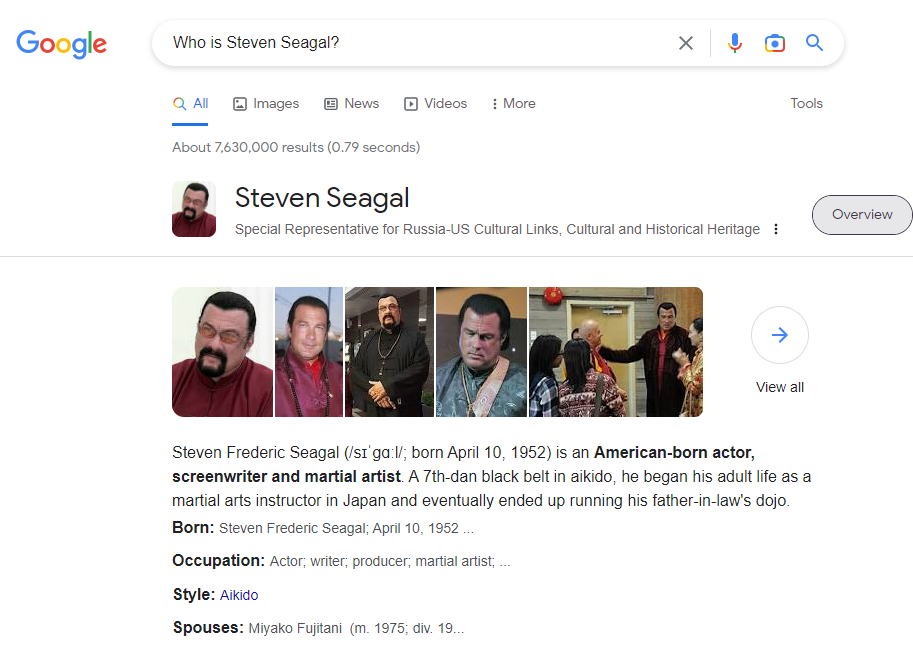
You will notice this even more in the future. These rich snippets are getting more and more detailed and accurate.
Can we think of a future where Google pulls the results from the websites and the users no longer have to click to enter the site?
It seems a dark and very pessimistic prediction from the perspective of a website owner, but let’s think about it.
As Google states in its own blog: Search has evolved along with the web, and if we trust this statement, it’s enough to stop and think about where the web is heading right now.
Can you think of any other service on the web, that hasn’t changed its core look and functionality for more than 2 decades?
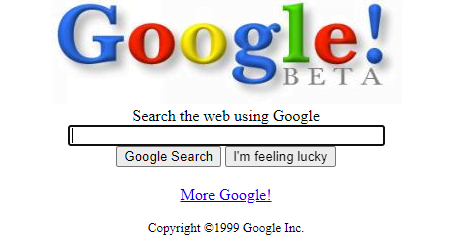
If Google can process the results and deliver them in a clear and aesthetic visual way. Without you having to enter a slow third-party website, with ads on it, with all the popups and annoying consents. If I’m a regular user I’ll never want to do extra clicks!
A study from not so long ago shows that around 50% of all searches finish without any additional clicks (no-click searches).
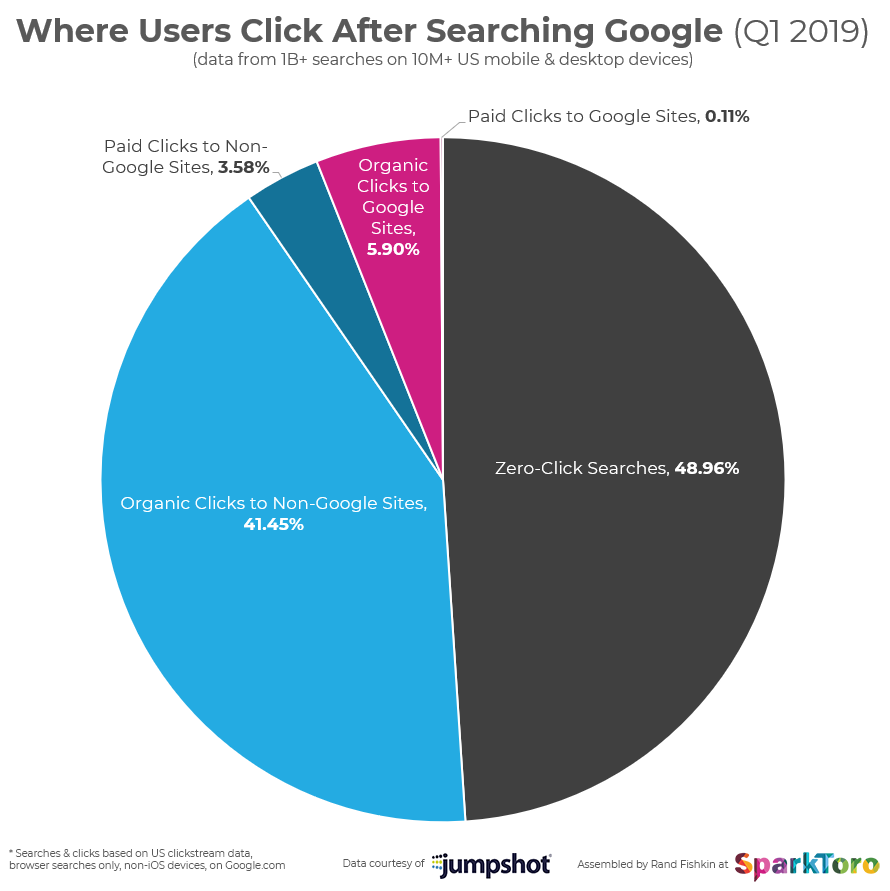
In altre parole:
UN: the user finds the relevant information right away (from the rich snippet)
B: The results they get have nothing to do with their search terms
And the simple answer to why this is happening maybe lies in the way we live in general – everyone is in a hurry today. We race to the final result, we can’t put our time to study and research.
The Rise of AI
Chatbots like ChatGPT from OpenAI will also change the way we think about searching the web in the future.
And according to recent news, Google feels threatened by this new tool and its powers.
How does the average user feel about long content?

Copywriters and content marketers writing for other professionals is one thing. Explaining to a normal user what is the key combination for taking a screenshot on their phone, nel 3000 words is a completely different beast.
In my fantastic photoshop example above – “How to open a door”. I’m sure marketers can approach even this question from 8 different angles, and come up with 2500 words answer + a buyer’s guide for choosing the best door handle.
If I have to choose the rules, every “How to” blog post would include no more than 2-3 paragraphs. Sometimes even 2-3 words and a pic, yes one picture is needed from time to time!
Bo – 2022
Maybe I simplify this a lot, but at least it’s better than a 2000-word post on how to use a vacuum cleaner in 2022 (that’s a real-world example).
Longer posts really can go in-depth on the topic, but we simply can’t use them in every situation.
Long articles and do people actually read them?
Here comes the best answer to all questions – dipende!
Different user groups have completely different goals and attention spans.

1. TikTok-ers
On one side we have the new generation of TikTok users and IG reels, breastfed with 5-sec content. Anything longer or less action-packed is just not good enough for them.
I can’t imagine a 16-year-old kid, spending 10 minutes reading an article, no matter how well is structured or written. Even if their life depends on finding the answer somewhere in it.
I’m not even sure if they still use Google search.
2. Busy working people on smartphones
These users are often just opening their phones to kill time waiting for the bus on the way to work.
Even if they do a Google search to find an answer to something, they will probably click the first result (even if it’s an ad) and scroll to it really quickly to find a relevant heading or image, which answers their query.
3. Professionals in the digital sector
These people know how stuff works. They understand the process, they know how keywords work, they understand the algorithm and what is the purpose of every piece of content they face.
These people won’t read your perfect SEO-optimized article with 22 headings and 9 internal links. They will know if this article is worth it or not within a few scrolls.
4. The rare breed of learners and seekers
Hidden in the shadows of social feeds and 15-sec videos, there still lives a rare breed of online users.
They might even use the “Bookmark this page” function for later use. Or search old forum topics and start new ones, just to find more specific information. If you write well, they will read your article!
Let’s finish this on a high note
I might seem pessimistic and negative about the long articles, and the future of Google search, but I’m still obeying the rules for now.
The proof is that this article is currently 1099 words long, which is a great achievement for me.
And if Google changes its algorithm and makes it rewarding for the honest, short, and no BS content, I’ll wait my turn to claim that SERPs.
Until then, grab a big cup of coffee, and let’s start working on the next long article.
Divulgazione: Alcuni dei collegamenti nella pagina possono contenere un codice di riferimento (link di affiliazione), che dice all'altra parte che ti abbiamo mandato. Se ti è piaciuto quello che ti suggeriamo e fai un acquisto, potremmo ricevere una commissione.


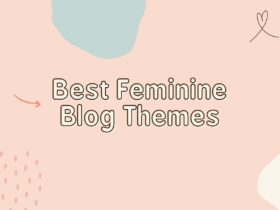

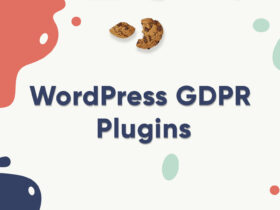




Hey man, amazing content! Are you writing it by yourself? and what is motivating you to do this?
And one more question: quale tema stai utilizzando su questo sito web?
Grazie!
Ciao, Lee. sì, Lo scrivo io stesso, principalmente solo perché mi piace scrivere. Il posizionamento su Google è un’altra cosa che mi motiva :D. Per quanto riguarda il tema che stiamo utilizzando, si chiama Pixwell.
Saluti!